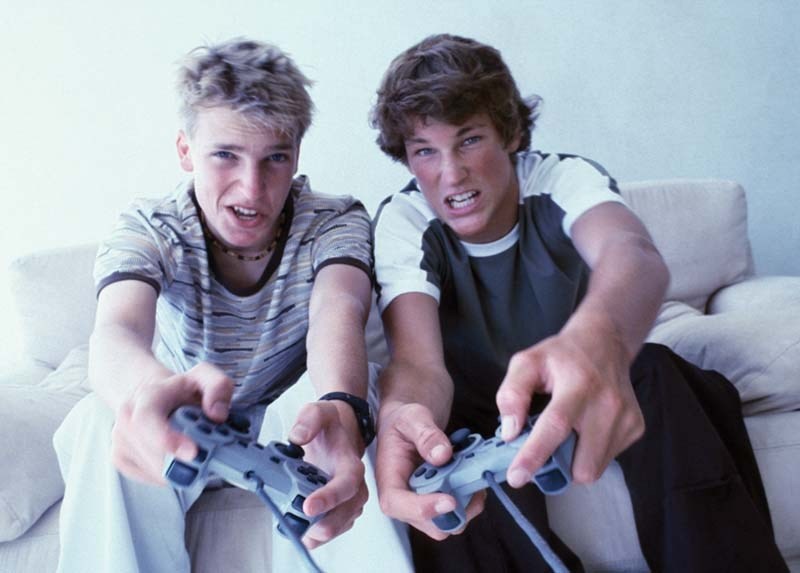With last month’s release of Grand Theft Auto V, the question as to whether violent video games cause violent behaviour in teens is in the spotlight once again. Parents, teachers, and players are often plagued with the question: Will M-rated, violent games, such as GTA, negatively impact a child’s behaviour?
As a video game columnist, the myriad of studies I have come across suggest that, though a correlation exists between violent video games and desensitization to violent imagery, there is little empirical data that the average teen is negatively influenced by video games. Parental involvement and open communication combined with avoiding excessive, obsessive stints of gameplay is more important for the average gamer than the choice of video game.
But what about young gamers who are already at risk for this type of behaviour. Do violent video games have a further impact on at-risk teens, those with ADD or other pre-existing mental health problems?
Simply put: no.
A study published in the Journal of Youth and Adolescence in August – aptly named “Not Worth all the Fuss After All?” rebukes the popular notion that violent games increase aggressive tendencies and delinquent behaviour in children and teens with a history of mental health issues. In point of fact, the study found that there was no significant effect, positive or negative, from violent games, with the only exception being that this type of video game may actually have a calming effect on teens with attention deficiencies.
The study used a variety of questionnaires and testing methods to look at 377 teens and pre-teens, all of whom had clinical attention deficits or suffered from depressive symptoms. It looked at a variety of factors that could potentially increase aggressive behaviour in youth, both clinical violence and civic behaviour. These factors included choice of video game balanced against such influences as family attachment and family violence, history of clinical and behavioural aggression, bullying and delinquent behaviours, and history of parental and child depression. The study concluded that the influence of video games are rendered moot in the face of other, more potent influences over an adolescent with ADD or depression, such as family attachment, antisocial behaviours, and peer influences.
The author of the study, Christopher Ferguson of Stetson University, says that a shift is needed in how the public perceives video games. "We found no evidence that violent video games increase bullying or delinquent behaviour among vulnerable youth with clinically elevated mental health symptoms." In fact, the study found that, in a few cases, violent video games could actually reduce bullying behaviours in at-risk teens.
My brother-in-law summed it up quite succinctly when I told him about the study. "If a kid is going to do something stupid," he said, " he's going to do it. At least this way, they can do something stupid in a video game. I'd rather that than in real life."
What I take from his illustrious words, and from this research, is that a change could come in how we see not only video games, but also in how we see the role these games can play in the treatment of mental health disorders in young gamers. "Although there certainly are some violent games with no redeeming social value," the study says ,"many violent games involve prosocial themes of heroism, love, honor, sacrifice, bravery and teamwork." Having played GTA V for a score of hours, I can tell you that these themes are definitely present and purposefully executed. It's just a shame that they are often hidden under a veneer of violence.
When he’s not teaching high school, St. Albert Catholic High School alumnus Derek Mitchell can be found attached to a video game console.




